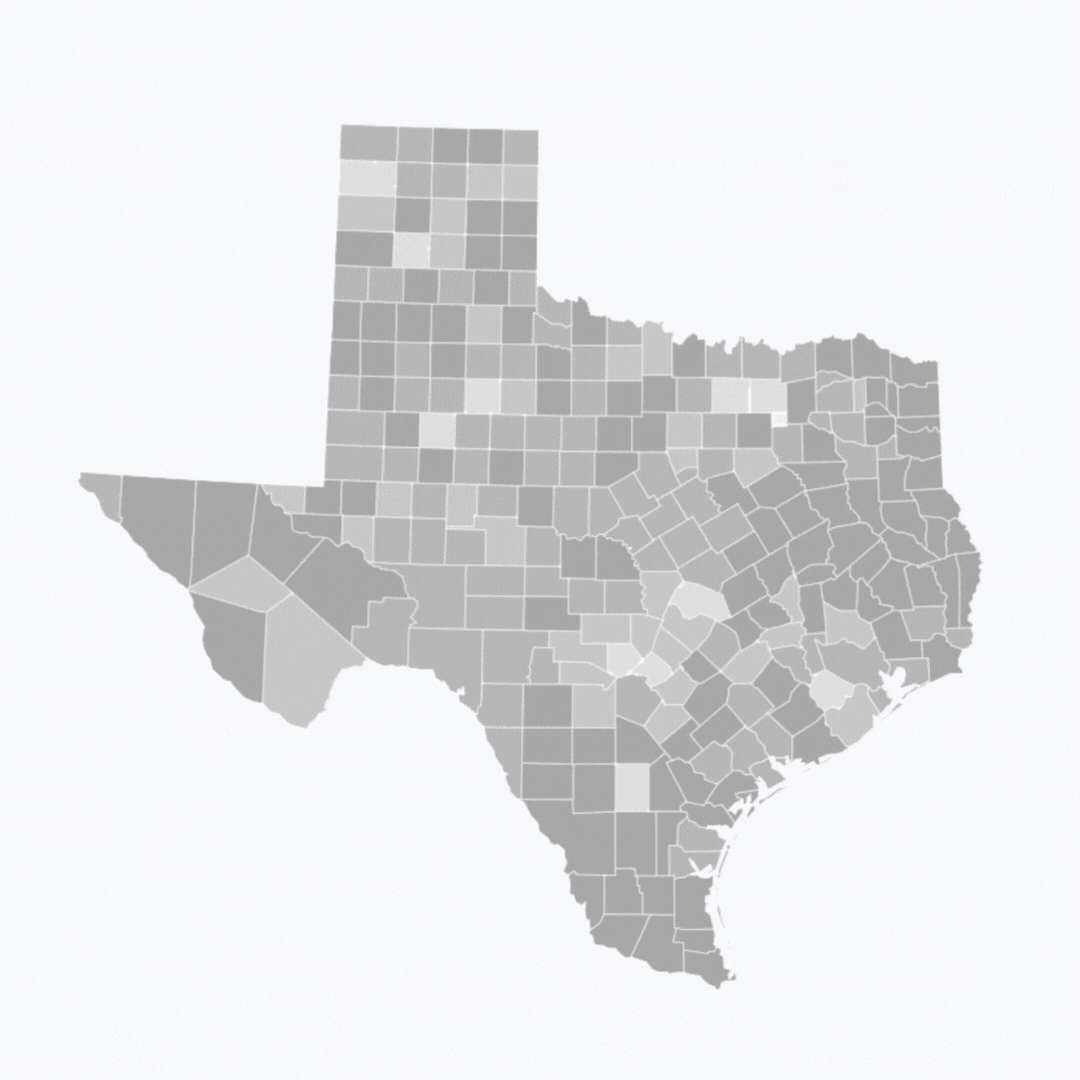Statistics, Events & News
Texas Maternal Mortality
Learn more about the state of maternal mortality and morbidity in Texas, focusing on Harris County and Houston.
Maternal Mortality & Morbidity
The Texas Department of State Health Services estimates that 90% of Texas maternal deaths are preventable.
The leading causes of pregnancy-related death in Texas fall into two categories: clinical and non-clinical risks.
Clinical Risks
Clinical causes of pregnancy-related death in Texas include: cardiovascular-related issues, mental disorders, hemorrhaging, and preeclampsia.
Non-Clinical Risks
From 2012 to 2015, 17% of Texas maternal deaths were attributable to drug overdose, and 11% to homicide — most perpetrated by intimate partners.
Access to Care
Texas was last in the nation for access to early prenatal care in 2016. Only 60% of pregnant women in Harris County received early access to prenatal care, and 5.6% received no prenatal care (compared to the national average of 2%).
Texas has the highest rates of non-insured people in the US, and while the state has extended Medicaid coverage for pregnant women up to a year postpartum, they have not implemented the Medicaid expansion, which addresses many of the health risks contributing to high maternal mortality that often occur outside of the coverage period.
Women who do not encounter care until well into pregnancy miss critical opportunities to make lifestyle changes that could prepare them for a healthy pregnancy and postpartum.
Infant Outcomes
Harris County’s premature birth rate of 12.1% earned them an F on the March of Dimes Maternal and Infant Health Report Card.
Preterm births in Texas are 1.6x higher for Black births, often driven by factors that are experienced at higher rates by Black individuals; including hypertension, unhealthy weight, diabetes, and previous preterm birth.
In Harris County, the infant mortality rate for babies born to Black mothers is three times that for babies born to white women. The racial disparity in infant mortality rates in Harris County is nearly 1.5 times the gap at the state and national level.
Environmental Challenges
Harris County scores a 78.6 (out of 100) overall on the Maternal Vulnerability Index, but falls in the highest risk category for many factors, including socioeconomic determinants, general healthcare, reproductive healthcare, and physical environment.
Chemical plants and oil refineries in the greater Houston area pose a hazard for pregnant women, and minority pregnant women in particular. Sites are overwhelmingly located close to or within communities of color, as are toxic and industrial waste facilities, and residents are frequently affected by environmental hazards including chemical spills and increased air pollutants, which are especially hazardous to pregnant women, who face risks of complications related to asthma such as preeclampsia.
Houston residents also deal with natural disasters like hurricanes, which hit Texas coastlines about once every 6 years.
In times of crisis or disaster, a reliable source of information is critical to ensuring patient safety. Babyscripts provides a trusted means of communicating real-time information to patients about evolving recommendations and advisories, as well as actionable tips and guidance for maternity patients.
Read more: Making Virtual Care Count: Hurricane Harvey & Babyscripts!
Remote Monitoring Can Help A Texas-Sized Maternal Health Problem
Payers, providers, and policy makers discuss healthcare deserts in Texas and remote monitoring's role in improving access and reducing health disparities.
Learn moreTexas Drives Patient Engagement with Babyscripts
Learn more about Babyscripts's partnership with Memorial Hermann Health System in Texas to support high risk maternal populations.
Press with our Texas Partners
Read more maternal health news from Houston
Within the Texas Medical Center, one baby is delivered every 20 minutes – approximately 26,280 births per calendar year. With statistics like that, improving women’s healthcare is an ever-present focus for TMC Innovation.
Partnership will provide patients access to top remote pregnancy care while targeting health inequities, maternal mortality and morbidity.
UT Physicians is expanding access to a nationally approved prenatal app that allows obstetricians to remotely monitor their pregnant patients’ progress and health. Following an initial pilot program, the app will now be available to all UT Physicians obstetric patients.
“Babyscripts has a data-driven, innovative approach, and that's aligned with our commitment to enabling better and easier access to end-to-end maternity care for all mothers.” - Tom Richards, senior vice president and global leader of strategy and business development, Cigna
Babyscripts, the leading virtual care platform for managing obstetrics, announced today that they are entering into a partnership with the Asian American Health Coalition, dba HOPE Clinic, a Federally Qualified Health Center (FQHC) serving the community of Houston, Texas.
The partnership provides pregnant patients who receive care at HOPE Clinic access to the Babyscripts myJourney app and remote monitoring solutions during the entirety of their prenatal journey and beyond.
Read the full article at Femtech Insider.The Hope Clinic provides pediatric, OBGYN and family medicine, psychiatric and dental and vision services to low income and uninsured.
Read the full article at the Houston Chronicle, or scroll down for an excerpt.
ARC now offers Babyscripts myJourney, a pregnancy and postpartum smartphone app to help you track your health and access maternity care education and information during and after pregnancy.
Babyscripts and FQHCs in Houston:
At Hope Clinic, focus is on health, not just ‘sick care’ [excerpt]:
We started this project with our pregnant women where we have them log into [Babyscripts], which has an educational platform, and they can watch all the prenatal educational materials at their leisure. It could be in bed, after dinner or after the kids are asleep. We also monitor what videos they are watching more often to make sure we’re giving them enough education.
We also give women who are at risk for developing high blood pressure a blood pressure monitor. Let's say they have a history of high blood pressure in their family, or they've had high blood pressure in the past, or maybe they're a little overweight. So, we look at the risk factors, we give them a blood pressure monitor, and then we teach them how to use it. We can also monitor how often they are taking their blood pressure. We can see if it’s trending higher or stable. We can really be proactive about their prenatal care rather than waiting until something happens. We have over 500 women enrolled in [Babyscripts].
Q: When did you start that app?
A: We started [in 2021]. I find it very exciting. The app is called Babyscripts.
Q: What made you interested in starting this app?
A: We used to have prenatal classes, but with COVID, we couldn’t gather our women anymore. We had been looking at ways how to provide them education without having to bring them into the clinic. Even putting a zoom group could be hard because some people don’t have the time or technology. So, when looking at alternatives we decided to put together this app.
Looking for tools to improve maternal health outcomes?
Learn more about our maternity care program for pregnant and postpartum patients.


.gif)
